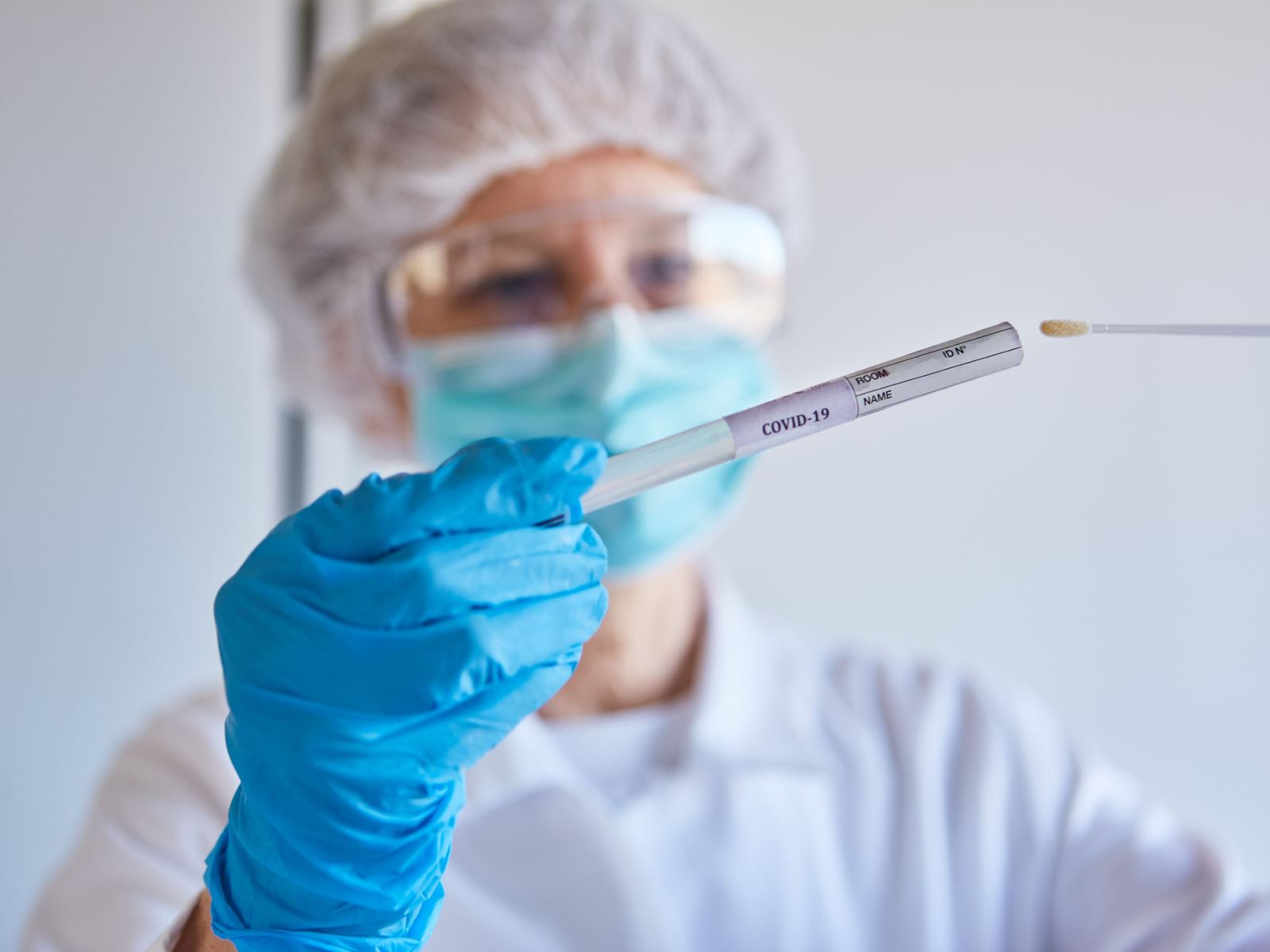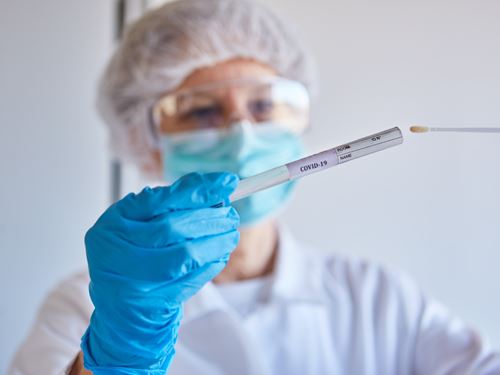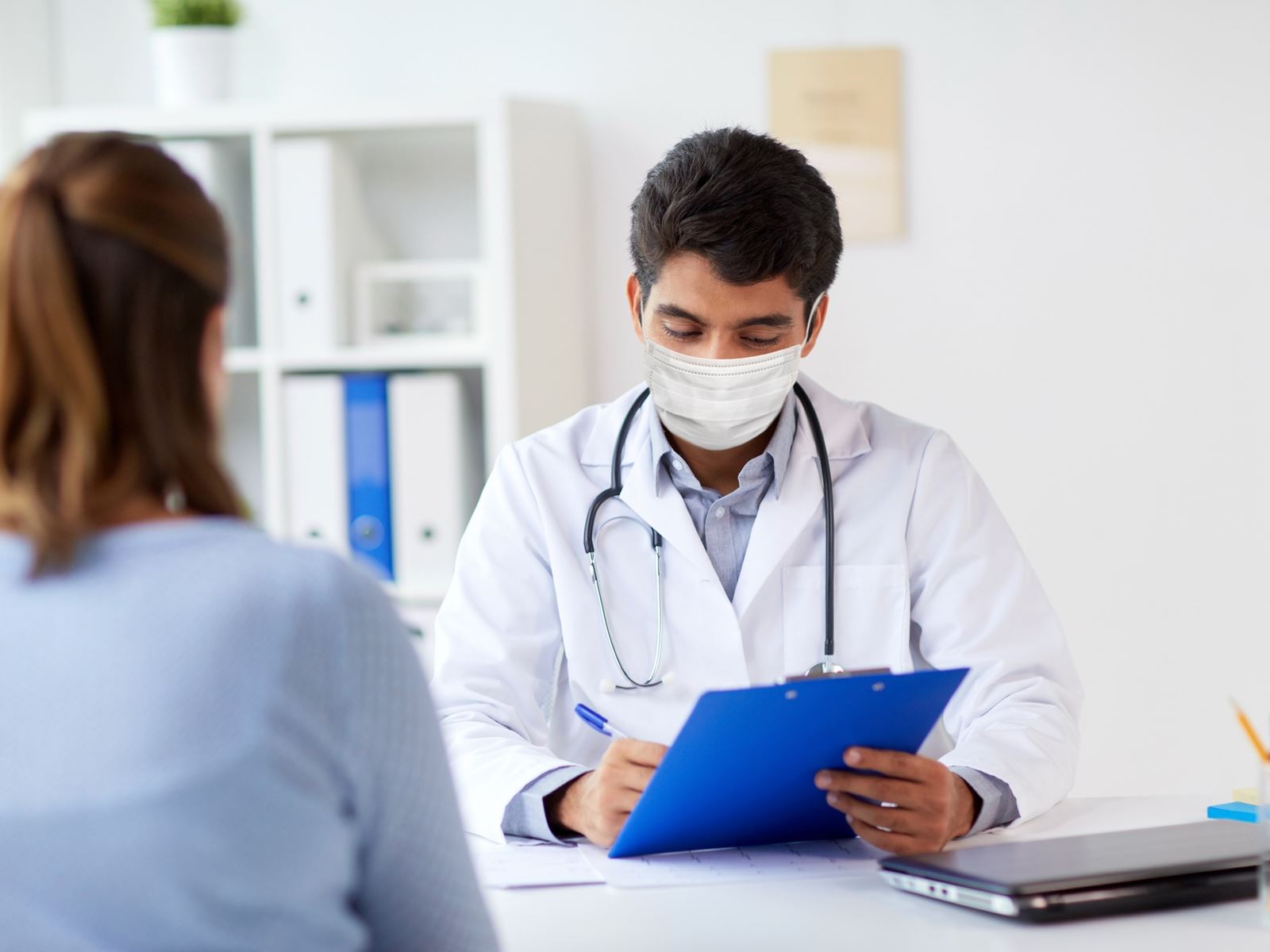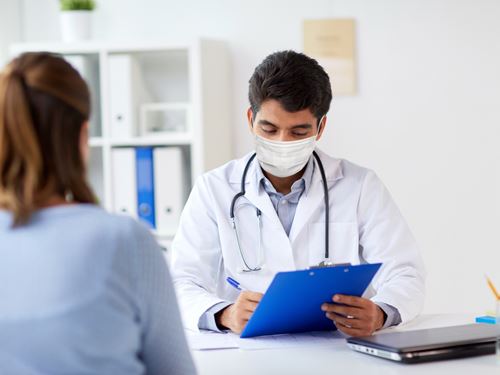If You are Exposed to Someone with COVID-19 or Develop Symptoms
Contact your neurologist or primary care physician immediately if you have had an exposure to someone with COVID-19 or if you start to develop symptoms that are concerning for COVID-19 (i.e., fevers, chills, cough, runny nose, fatigue, sore throat, loss of taste and/or smell, vomiting, diarrhea). If you have a known exposure to someone with COVID-19 you may be eligible to receive monoclonal antibody treatment as post-exposure prophylaxis to prevent you from getting sick with COVID-19. In addition to post-exposure treatment, early diagnosis of COVID-19 is important as you may be eligible to receive this treatment to prevent you from getting sicker.
COVID-19 General Information
COVID-19 is an infectious disease caused by a type of coronavirus related to the common cold. The most frequent symptoms of COVID-19 are fever, tiredness, and dry cough. Some patients may have aches and pains, nasal congestion, runny nose, sore throat, or diarrhea. These symptoms are usually mild and begin gradually. Some people become infected but don’t develop any symptoms and don’t feel unwell. Most people (about 80%) recover from the disease without needing special treatment. Around 1 out of every six people who get COVID-19 becomes seriously ill and develops difficulty breathing. People with fever, cough, and difficulty breathing should seek medical attention. People can catch COVID-19 from others who have the virus. The disease can spread from person to person through small droplets from the nose or mouth, which spread when a person with COVID-19 coughs or exhales. These droplets land on objects and surfaces around the person. Other people then catch COVID-19 by touching these objects or surfaces, then touching their eyes, nose, or mouth. People can also catch COVID-19 if they breathe in droplets from a person with COVID-19 who coughs out or exhales droplets. This is why it is essential to stay more than 1 meter (3 feet) away from a person who is sick.
MS & COVID-19
COVID-19 and Multiple Sclerosis
Any viral illness can transiently worsen multiple sclerosis symptoms. Currently, there is no evidence that COVID-19 can trigger a person with MS to have an attack that causes new damage to the nervous system. All people with MS should exercise standard precautions recommended by the US Centers for Disease Control as outlined below to reduce the possibility of infection. Many people with MS are on medications that interact with the immune system (immune modifying or immune-suppressive). People on these medications should take the same precautions listed below but have a lower threshold to seek medical attention should fever or cough occur.
COVID-19 and Your Appointment
If you have experienced a fever or cough within 24 hours of your scheduled MS appointment, please DO NOT arrive for your appointment.
Instead, you should call the MS center, and we will re-schedule in an appropriate interval so that you can be seen for your MS in a timely way but also not potentially expose other patients or staff members to possible infections.
Information on Preventing Infection
Practice everyday preventive actions now. Remind everyone in your household of the importance of practicing regular preventive measures that can help prevent the spread of respiratory illnesses:
- Avoid close contact with people who are sick.
- Stay home when you are sick, except to get medical care.
- Cover your coughs and sneezes with a tissue or into the crook of your elbow if one is unavailable.
- Clean frequently touched surfaces and objects daily (e.g., tables, countertops, light
switches, doorknobs, and cabinet handles) using regular household detergent and water. - If surfaces are dirty, clean before disinfection before using a detergent and water.
- Wash your hands often with soap and water for at least 20 seconds, especially after going to the bathroom; before eating; and after blowing your nose, coughing, or sneezing.
- If soap and water are not readily available, use a hand sanitizer that contains at least 60% alcohol.
- Always wash your hands with soap and water if your hands are visibly dirty.
- Choose a room in your home that can be used to separate sick household members from those who are healthy.
- Identify a separate bathroom for the ill person to use, if possible.
- Plan to clean these rooms, as needed, when someone is sick.
Infusions During COVID-19
Mass General Brigham/MGB infusions at the Building for Transformative Medicine Ambulatory Infusion During COVID-19
We have always made patient safety a priority at Mass General Brigham/MGB. During the COVID-19 pandemic we have made the following adjustments to continue to optimize your safety:
- We have reduced volume intentionally by approximately 1/3 in order to decrease both staff and patient exposure.
- Patient to nurse ratio has been kept the same, typically one nurse will care for two patients.
- It has always been a priority to maintain clean facilities and this has continued. All patient bays are being wiped with disinfectant, additional regular rounds of the entire unit are made by both environment services our medical assistants to continue cleaning common and high touch spaces.
- Patients receive a mask when they enter the building. They wear this mask the entire patient treatment.
Additional resources:
NMSS-NMAC Statement
The Centers for Disease Control and Prevention (CDC) are following the outbreak of coronavirus (COVID-19), which causes a respiratory disease. This is a rapidly evolving situation and questions regarding the use of disease modifying therapies during this outbreak are being raised.
The National MS Society's National Medical Advisory Committee recommends the following:
- People with MS should follow CDC guidelines and these additional recommendations for people at risk for serious illnesses from COVID-19.
- People with MS should continue disease modifying therapies (DMTs) and discuss specific risks with their MS healthcare provider prior to stopping a DMT.
- Before starting a cell depleting DMT or a DMT that carries warnings of potentially severe increase in disability after stopping, people with MS and their MS healthcare providers should consider specific risks (e.g. age, comorbid health conditions, location) and benefits.



